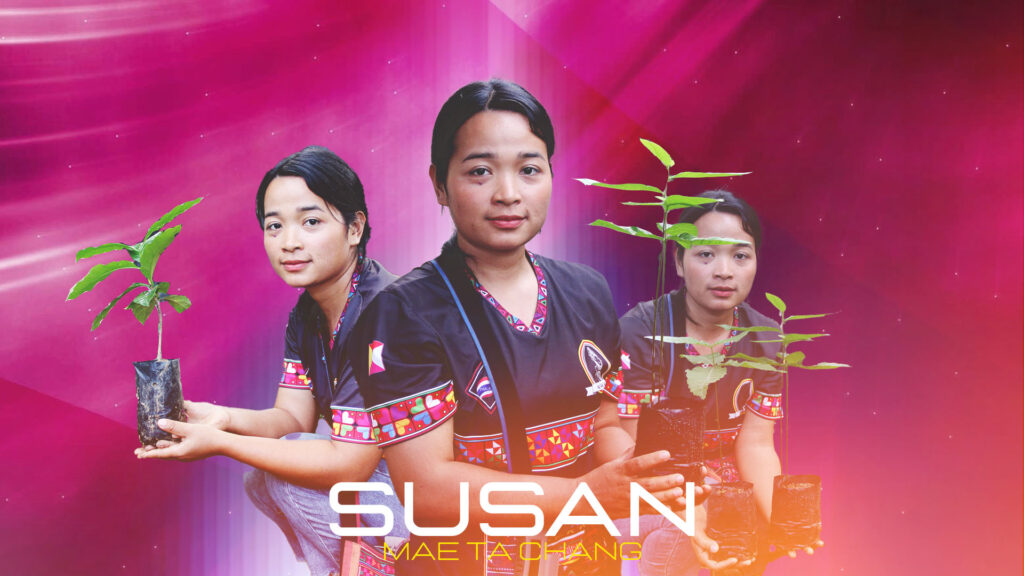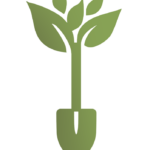“Before joining a Purpose Group, my biggest concern was that my family depended on farming for a living. We planted maize and tended to a small fruit farm. But farming is unstable. Our income depended on the market price of crops. Some years, prices were so low that we lost money, and all the effort and investment we put into planting felt wasted.”
This instability left Susan anxious about her family’s future. “We lived from hand to mouth, with nearly everything going toward daily expenses. Without savings, we felt insecure.”
When Susan first heard about Purpose Groups, she hesitated. “I worried that our income would not be enough to save consistently.” In addition to this financial uncertainty, Susan faced personal struggles. “I live with my young daughter at my aunt’s house because we do not yet have our own home. I carry the responsibility of providing for our daily needs and caring for my child by myself. My husband is working in another country, which leaves me feeling both anxious and lonely. I often wonder if I can provide a good life for my daughter.”
These challenges pushed her to seek change. “I want to shift away from planting maize as a monocrop. It requires high investment, and in some years the harvest is poor. I hope to adopt farming practices that are more cost-effective and sustainable. I also want to save enough to pay off debts, build a house of our own, and create a secure life for my family. Most of all, I want my family to be together in the future.”
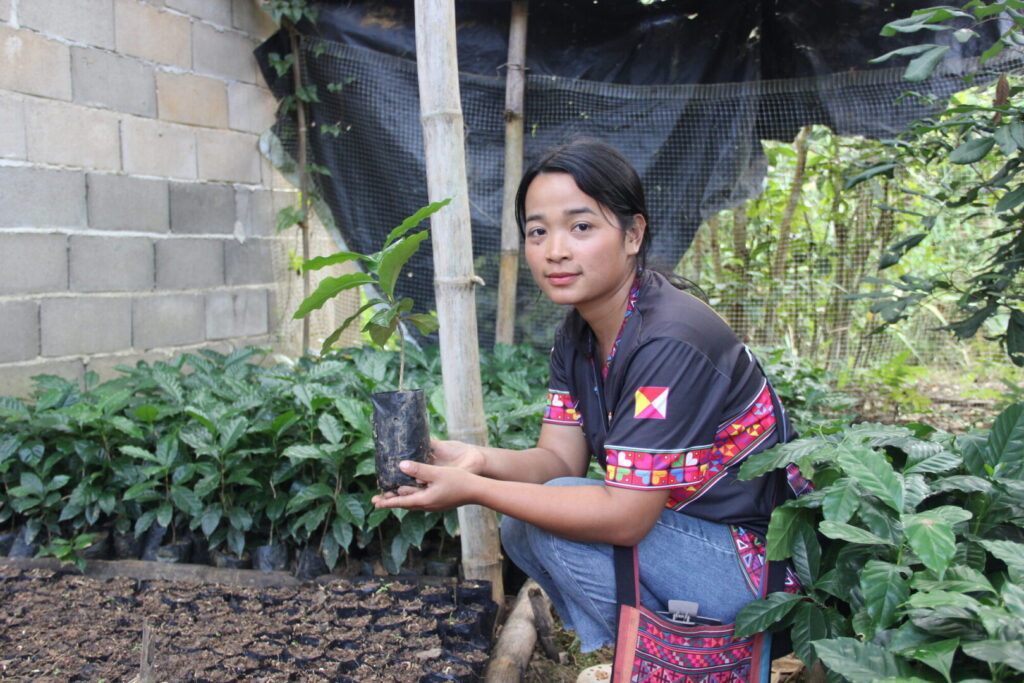
Despite her worries, Susan holds onto hope. “One of my greatest hopes is for my family. Since my husband and I started our life together and had our child, we have dreamed of having our own house and a car. However, we still do not have them. That is why my husband went to Korea to work, helping to improve our family’s situation. I hope that one day we will have a home and a more stable life, where our family can live together in security.”
Her hope also comes through the progress she has seen since joining her Purpose Group. “I started saving about six months ago, and even though it is still early, I am committed to saving regularly. I believe that little by little, the savings will grow into something meaningful that can create good opportunities for my future.”
Together with other members, Susan is also learning to care for creation. “Our Purpose Group is doing tree nurseries. Together, we are caring for young seedlings and watering them as they grow. With training and encouragement from Plant With Purpose, we now have a variety of tree seedlings that are sprouting well. Our goal is to continue nurturing them so they grow strong. Later, we will share these seedlings and plant them in our fields. This gives me hope that we can restore our land, improve our farms, and create a greener future for our community.”
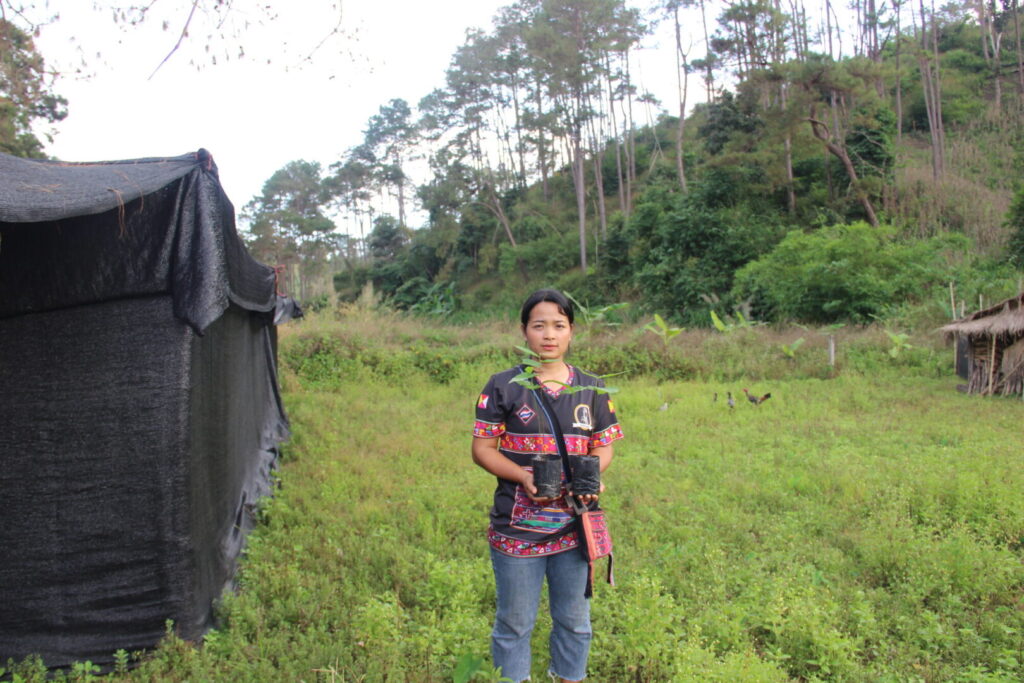
Susan’s memories of the past remind her how much has been lost. “About 20 years ago, this area around our community was still covered with forest. There were many big trees, and the land was green and fertile because agriculture was not so widespread then. I was about seven or eight years old at that time.”
But over time, things changed. “As the years passed, the population in the community increased, and with it came a greater demand for land. Agriculture expanded continuously, and the forest areas started to disappear. The growth of farmland and the expansion of the community meant that green forest areas were cut down and replaced with fields.”
Now, she says, “there is almost no forest left around the community. Nearly all the land has become farmland, shaped by the needs of the people and by changes in the environment over time. The effects of this are clear. The loss of forests has destroyed wildlife habitats. Soil has degraded, which reduces the productivity of farmland. Crops do not grow as well as they used to. On top of this, I feel the climate is changing. The temperatures are hotter, and during the dry season from February to April, there is smoke in the sky.”
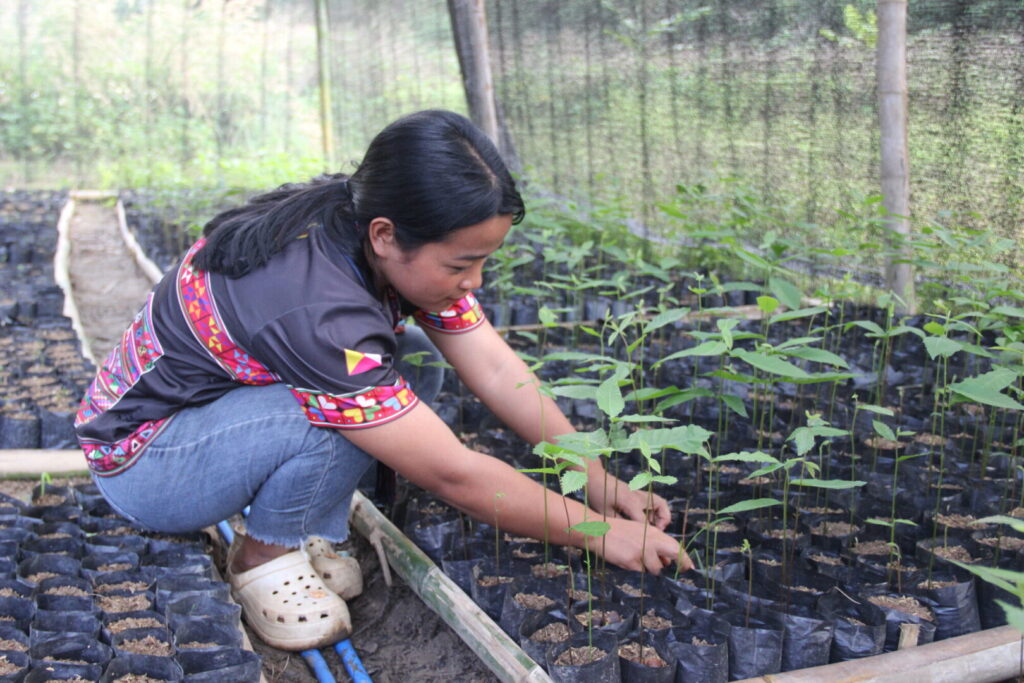
For many years, families felt trapped in maize farming. “Most families relied on maize farming because it is popular and in high demand at the market. But for many farmers, planting maize is not a real choice. It feels like the only option for survival. Large areas of hillside have been cleared for maize. Now, there are no trees left, and farmers face the problem of soil degradation. Because maize requires heavy use of chemicals, the soil becomes weaker over time. Fertility is lost, and farmers find they must use even more fertilizer just to maintain yields.”
Recently, however, change is taking root. “More families are starting to plant bananas, fruit trees, and other perennials such as rubber trees, instead of depending only on maize. People are realizing that monocropping creates financial instability, requires high investment, and harms the land.”
Susan sees that Plant With Purpose has played a significant role in these changes. “Our community has grown more aware of how important it is to protect our forest. Since partnering with Plant With Purpose, we have taken steps each year to restore the environment. We work together to build firebreaks, protect our community forest, and plant trees. These efforts help us restore the land, care for our environment, and move toward a more sustainable future for our community.”
Transformation is not only about the land. It is also about people.
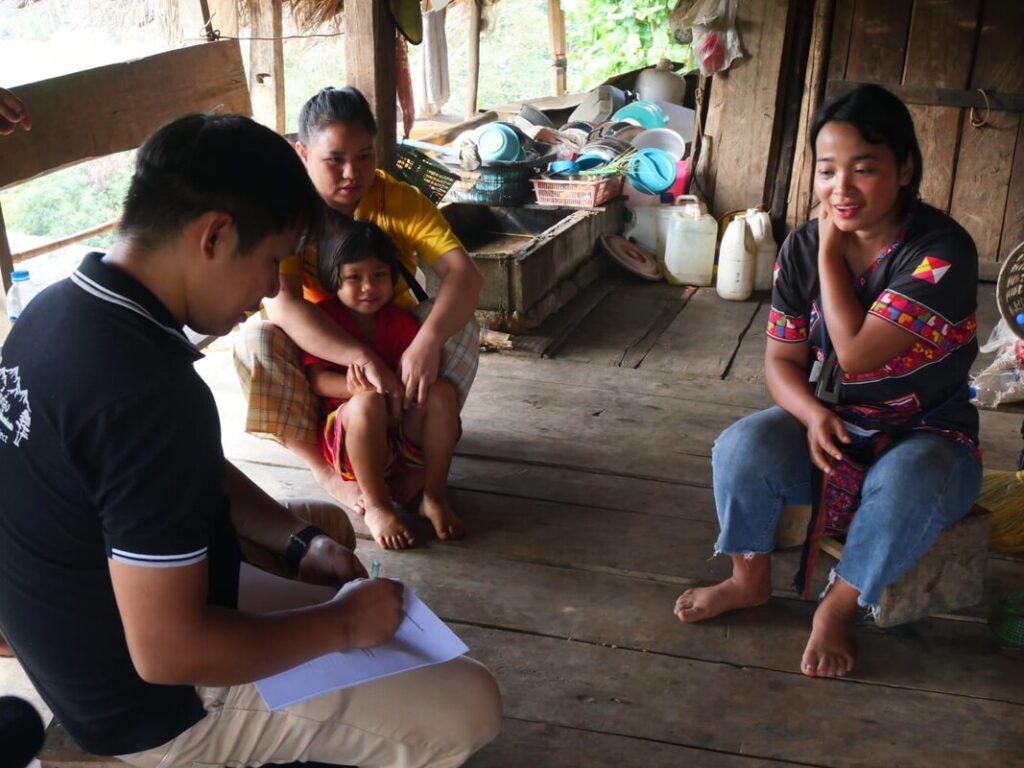
“In the past, our community did not have many activities that built relationships between members. Everyone mostly worked on their own. We only came together occasionally, for example, when women gathered to help one another, during church work, or during faith-related activities. At times, we supported each other in moments of need, but beyond that, there was little connection.”
Things are different now. “After our community joined activities with Plant With Purpose and began forming Purpose Groups, things started to change. These groups created activities that have had a positive impact on both our families and the wider community. It is not only about saving. It is also about learning new skills and working together in many ways.”
Through these shared activities, unity has grown. “We also meet regularly and participate in projects like tree nurseries. Together, we learned how to cultivate seedlings, and then each member was given responsibilities to care for them. We hope that, in the future, these trees will grow strong and be planted on each person’s land. These activities have done more than just strengthen skills. They have built stronger relationships within the community, encouraged greater self-reliance, and strengthened our unity. At the same time, they have helped us care for creation in ways that will last into the future.”
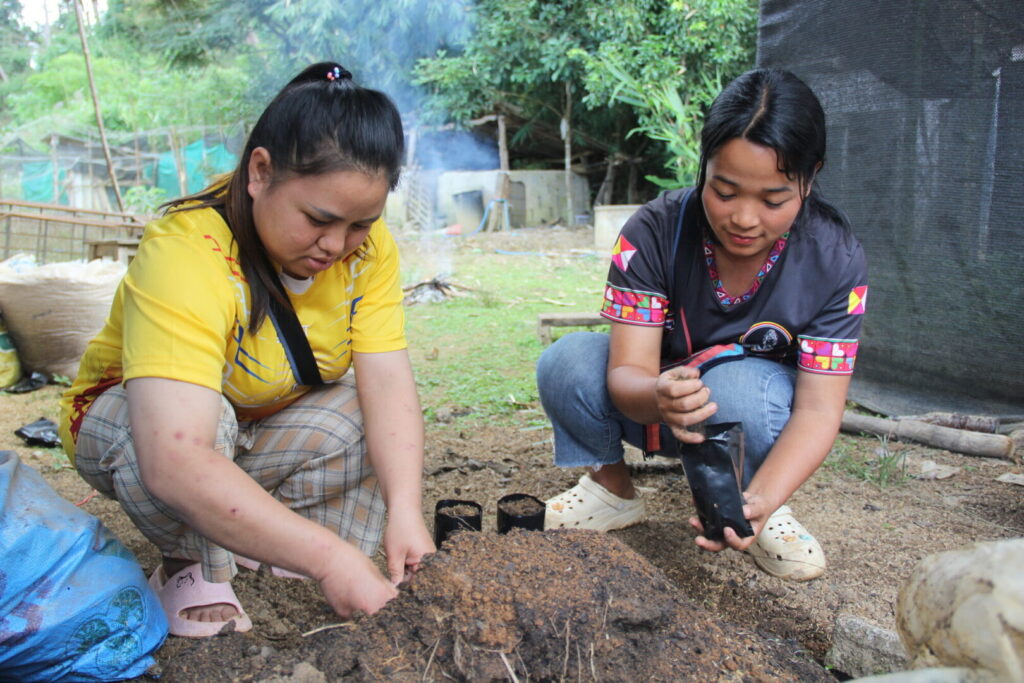
Susan’s faith gives meaning to her work. “The Bible teaches that God created everything on earth and entrusted humans to care for the environment. I believe this deeply.”
Her partnership with Plant With Purpose has deepened this understanding. “I was introduced to sustainable agriculture practices like agroforestry, backyard gardening, and tree nurseries. These were new to me because I had never had the chance to learn about them in the past. Not only have I heard about them, but I have also received training and put their principles into practice. This has made me much more aware of the importance of caring for nature and creating sustainability in agriculture.”
This spiritual perspective helps her connect her relationship with God to her relationship with creation.
“In my relationship with God, I see creation is full of beauty and essential to our lives. However, I now also see how quickly nature is being damaged. We can see it in the changing climate and the degradation of the environment. I believe everyone must work together to care for nature, because our lives depend on it. ‘If there is no nature, there will not be us.’ Nature must be a priority. It is not only a resource, but a part of our very lives.”
Susan’s story illustrates how caring for the land, nurturing relationships, and deepening one's faith are all interconnected. Our relationship with nature reflects our relationship with God. And when communities work together to restore creation, they also regain trust, unity, and hope among one another.
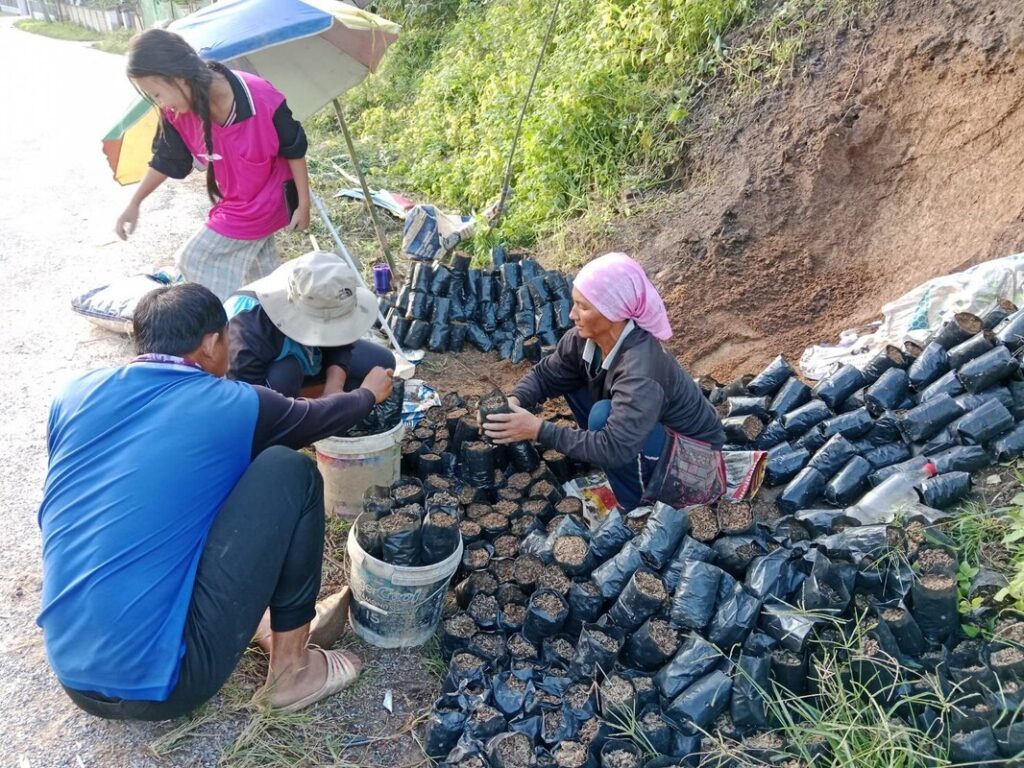
This kind of holistic transformation is made possible by the generosity of Plant With Purpose’s supporters. People who believe that overcoming poverty and caring for the environment must go hand in hand with spiritual renewal.
Through her Purpose Group, Susan has found hope not only for her family’s livelihood but also for her community and her faith. As she says, “Nature must be a priority. It is not only a resource, but a part of our very lives.”

